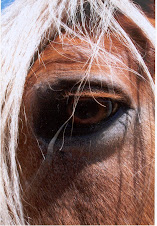Listen, children, to a story that was written long ago.
‘Bout a kingdom on a mountain and the valley-folk below.
On the mountain was a treasure, buried deep beneath the stone.
And the valley-people swore they’d have it for their very own.
So the people of the valley sent a message up the hill asking for the buried treasure, tons of gold for which they’d kill.
Came an answer from the kingdom, “With our brothers we will share all the secrets of our mountain, all the riches buried there.”
Now the valley cried with anger, “Mount your horses! Draw your sword!” and they killed the mountain-people, so they won their just reward.
Now they stood beside the treasure, on the mountain, dark and red. Turned the stone and looked beneath it...”Peace on Earth” was all it said.
Go ahead and hate your neighbor, go ahead and cheat a friend. Do it in the name of heaven, you can justify it in the end. There won’t be any trumpets blowing come the judgment day, on the bloody morning after...One tin soldier rides away.
-One Tin Soldier (The Legend of Billy Jack) by Lambert-Potter
I was 12 years old in 1969, too young to go to Woodstock, but not too young to be influenced by the peace songs and anti-war protests of the era. I wore bell bottom jeans and blousey tops. My hair was long and straight, parted in the middle. I wore peace sign jewelry and memorized the lyrics to many of the peace songs of the day.
The 60s and 70s were a tumultuous time of war, racial riots, sit-ins, peace marches and music. We spoke our minds, stood up for our beliefs, and wore our hearts for peace on our sleeves.
Now, those of us who lived through those times are in our 50s and 60s. What happened? Where have all the flowers gone? Are they still blowin’ in the wind? Did we ever give peace a chance? Or did the Peace Train roll on past with empty seats?
John Lennon saw it. He imagined “all the people, living life in peace.”
“You can say I’m a dreamer, but I’m not the only one. I hope some day you will join us. And the world will live as one.”
And his fellow band members, The Beatles, agreed, “When the broken hearted people, living in the world agree. There will be an answer, let it be.”
Today, we sit in a world still at war. We struggle with issues of neglect for our Mother Earth. We, the children of the 60s and 70s, seem to have forgotten those issues we fought for. We are the ones who grew up, raised families, and helped build our current culture of excess. We are the corporate executives of B.P. Oil. We are the advisors to the President of the United States. We spearheaded the technological revolution. And for all we have built, and all we have used up, we are still at war.
“War, huh, yeah, what is it good for, absolutely nothing.” - War by Edwin Starr
The good news is, we can go back and remember. Our generation, many of us either nearing or in our retirement years, can still change the world. We are the elders. We hold the knowledge of the past, the wisdom to see the present, and the ability to help the young ones move into the future. We can still raise the flag of peace. We can still let our voices be heard.
At her recent performance at Big Top Chautauqua, Joan Baez asked the audience what they were willing to risk. She talked about her youth, the protest marches, and spending time in jail with her mother. She has led her life as a peace activist and is still willing to speak out.
We can be role models for peace. Our stage is our life. Each step we take, each conversation we have, how we treat our neighbors, who we vote for, our thoughts, words and deeds, they all matter.
The 60s and 70s weren’t only about sex, drugs and rock and roll. It was our learning ground, the place where we trained for this present moment. So, don your bell bottoms, and search in your drawers for those old tie-dyed t-shirts with the peace signs on them. Let your hair down and let your voice be heard. We may be old, but we’re not dead yet.
In the words of John Lennon, “If someone thinks that love and peace is a cliche that must have been left behind in the 60s, that’s his problem. Love and peace are eternal.”
This is a call to wear your heart for peace on your sleeve once more. The time is now, before the predictions of Rick Evans, writer of the song In the Year 2525, come true:
“Now it’s been ten thousand years. Man has cried a billion tears. For what, he never knew, now man’s reign is through. But through eternal night, the twinkling of star light, so very far away, maybe it’s only yesterday.”
Wednesday, July 28, 2010
Subscribe to:
Comments (Atom)




